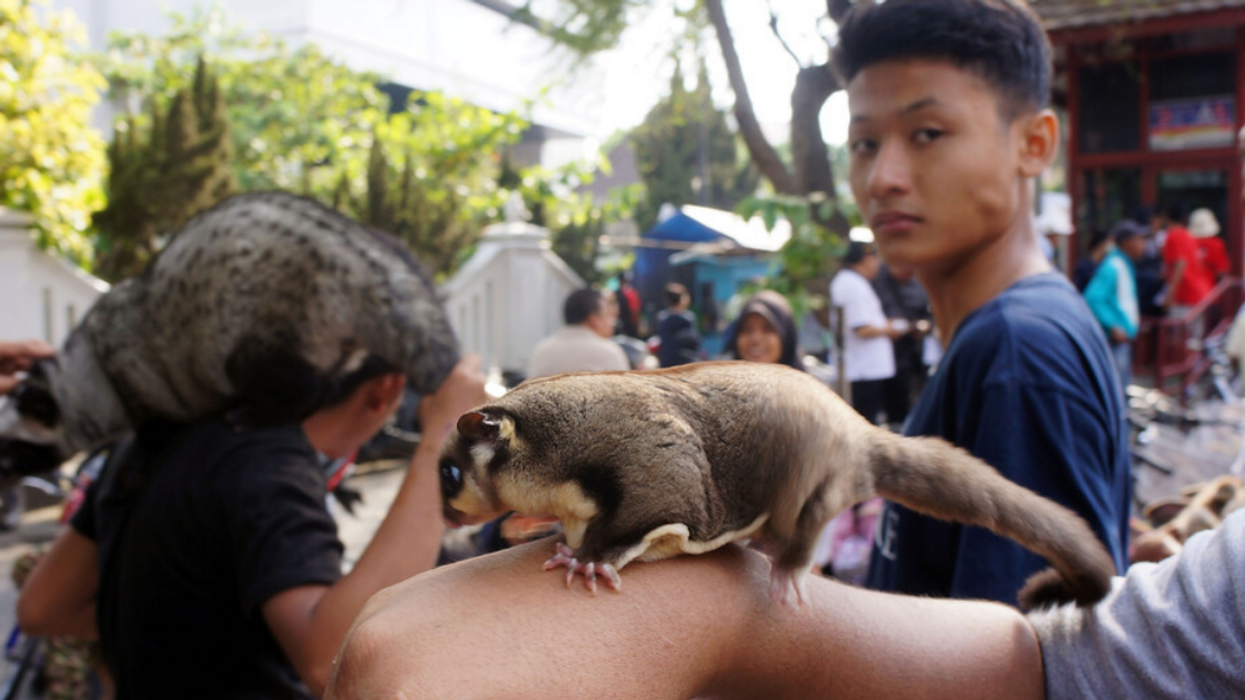Three Sugar Gliders Were Rescued By The Montreal SPCA & They're So Stinking Cute (PHOTOS)
You can adopt them, legally speaking!

Two sugar gliders are shown off in their native Indonesia.
So, a dog is too mainstream and cats give you hives. Reptiles aren't cuddly enough, and rabbits are TOO cuddly. What's left for a Montreal pet owner to choose from? Thanks to Canada's surprisingly lax animal ownership laws, you can turn to a high-maintenance, extremely adorable pet: the sugar glider.
And you're in luck, because the SPCA has just rescued a trio of the flying possums right here in Montreal.
"This nocturnal animal, of the marsupial family, lives in trees and can glide over a distance equivalent to a soccer field," the Montreal SPCA explained in an Instagram post.
"Sociable by nature, it lives in colonies with its fellow creatures," the SPCA continued. "Sugar gliders form tightly woven groups and share a close bond with their clan members."
That means you won't want to separate the adorable trio if you're considering adopting them. But if you do want to take home this group of cuties, you should know that it's no easy task to care for them.
In fact, the SPCA itself isn't equipped to house the sugar gliders — they're being transported to a specialized shelter that is more able to meet their needs.
"The needs of sugar gliders are extremely difficult to meet in captivity," the SPCA wrote, "especially because of the large amount of space required to house them. Movement is crucial for them or they become very vulnerable to depression."
In the worst such cases, sugar gliders have been known to self-harm as a result of their depression, according to World Animal Protection.
Sugar gliders are also nocturnal, and require a good day's rest to be their happiest selves. "Without this restful sleep, they will be distressed and will demonstrate this by emitting various odours or sounds," the SPCA continued. "Most of the time, they suffer from malnutrition in captivity, because the food they eat is difficult to find in our local markets."
Their diets consist of "tree gum, saps, nectar, pollen and live insects," per World Animal Protection. Not so easy to find at your local Mondou, that's for sure.
This article's cover image was used for illustrative purposes only.
